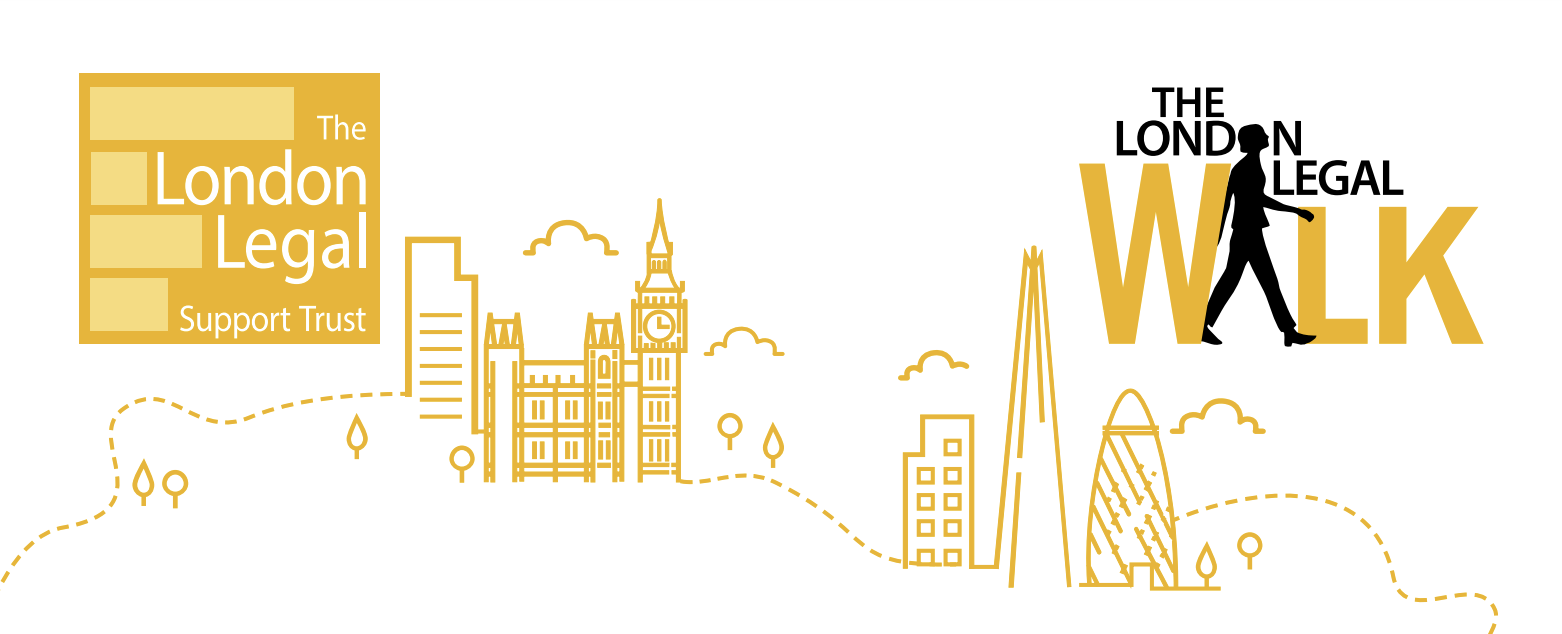Weekly Notes: legal news from ICLR, 25 October 2021
This week’s roundup of legal news and commentary includes legislation on assisted dying and the environment, judicial review under review, legal aid and support, and some recent case law. Meanwhile, back at HQ, we’re tremulously excited about the forthcoming launch of ICLR.4 in less than a week’s time.… Continue reading

Legislation
Assisted dying
The House of Lords has been debating the Assisted Dying Bill at its second reading. The bill has been introduced by Baroness Meacher, a cross-bench peer, and would apply only to the jurisdiction of England and Wales. According to the British Medical Journal (BMJ) “assisted dying” was defined by proponents of an earlier (2015) bill as meaning the prescribing of life-ending drugs for terminally ill, mentally competent adults to administer themselves after meeting strict legal safeguards. It is not the same as “assisted suicide”, which may cover cases where the person assisted in ending their life does not suffer a terminal condition, though it may be a long term progressive condition. Nor is it the same as “voluntary euthanasia”, which the BMJ says describes a doctor directly administering life ending drugs to a patient who has given consent.
Assisted dying (or indeed assisted suicide or voluntary euthanasia) is currently illegal in England & Wales under section 2 of the Suicide Act 1961, which makes it an offence punishable by up to 14 years’ imprisonment intentionally to do an act capable of encouraging or assisting the suicide or attempted suicide of another person. The full rigour of this provision has been tempered slightly by a Policy on assisted suicide from the Director of Public Prosecutions and CPS in February 2010, formulated and published in response to the House of Lords’ decision in R (Purdy) v DPP [2009] UKHL 45.
There has been widespread public support for a more liberal approach to the law, and a number of attempts since Purdy’s case to get the courts to change the law; but the courts cannot amend the legislation and Parliament has hitherto been hindered from doing so by respect for, or fear of, religious or moral objections from some parts of the population or those claiming to represent them.
In the debate on Friday 22 October, justice minister Lord Wolfson of Tredegar said the government’s position was one of neutrality:
“If the will of Parliament is that the law on assisting suicide should change, the Government would not stand in the way of such change but would seek to ensure that the law could be enforced in the way that Parliament intended.”
There is a good analysis of the current law and the problems it has created in an article by Sir Stephen (formerly Lord Justice) Sedley in the latest issue of London Review of Books: A decent death. He points out that the 1961 Act was intended to liberalise the law (from a position of treating suicide itself as a form of murder, an unsuccessful attempt at which was punishable by, er, the death penalty) but section 2 fails to distinguish between the sympathetic assister seeking to relieve the suffering of the fatally ill and the cynical or uncaring encourager of a needless self-killing – a distinction the DPP’s policy also failed to make. The policy also requires the assistant to incriminate themselves in order to avoid prosecution, which raises fundamental objections of procedural fairness.
In any case, it is unsatisfactory for those who would like to assist the dying to face both legal uncertainty as to the consequence of their acts and a need to put themselves at the mercy of the executive (in the form of the CPS) over the risk of prosecution.
- House of Lords Library briefing, Assisted Dying Bill
- Law & Religion UK: Assisted Dying Bill (England & Wales) including a joint press release by religious leaders warning of the risk to vulnerable people
Environment
Raw sewage overflows
“So, on to poo. Storm overflows designed for emergencies are now being used as a daily method of sewage management.”
Thus spake the MP for Rushcliffe, Ruth Edwards in a Commons debate on 20 October concerning a Lords amendment to the Environment Bill which would have imposed a legal duty on water companies not to pump untreated waste into rivers and coastal waters. Lords amendment 45 read as follows:
“141A Duty on sewerage undertakers to take all reasonable steps to ensure untreated sewage is not discharged from storm overflows into inland and coastal waters
(1) A sewerage undertaker must, as soon as reasonable, take such steps as are necessary to — (a) demonstrate improvement in the performance of sewerage systems, and (b) secure progressive reductions in the harm caused by untreated sewage discharges into inland and coastal waters.
(2) The Secretary of State, the Director and the Environment Agency must exercise their respective functions under this and any other Act to secure compliance with this duty.”
Earlier in the debate (see Hansard, 20 October 2021, col 849), the depressing context of the problem had been eloquently set out by Luke Pollard, MP for Plymouth, Sutton and Devonport:
“Let me now turn to a matter that shames our nation: the state of our rivers. Not one English river is in a healthy condition, not one meets good chemical standards, and only 14% meet good ecological standards. The state of our waterways has not improved since 2016, five years ago. England has the worst river quality in Europe. The World Wide Fund for Nature reports that rivers in England are ‘used as open sewers’, and that targets for 75% of them to be healthy by 2027 are ‘very unlikely’ to be met. More recent research has found that the rate of unlawful discharge of sewage into waterways could be up to ten times higher than the rate suggested by the Environment Agency’s prosecutions.”
Nevertheless, the Conservative majority in the Commons voted down the amendment, by 265 votes to 202, in favour of measures for the prevention of raw sewage outflows which were decidedly, shall we say, watered down. Rebecca Pow, the minister responsible for the bill, had told the House that: “As an approximate estimate, to get rid of or eliminate storm sewage overflows would cost between — these are very wide figures — £150 billion and £660 billion.”
Despite their almost insulting vagueness (clearly no sensible attempt had been made to cost the measure, though water companies were earlier reported to have agreed to invest a mere £1.1bn to improve storm overflows), these “very wide” figures have nevertheless been relied upon in a series of curiously boilerplated tweets by various MPs in response to constituents who, in a curiously boilerplated campaign of tweets over the weekend, had accused them of voting for raw sewage to be dumped in rivers and on beaches. The suggestion that these MPs were cheerfully endorsing the pumping of cloacal effluent into rivers and the sea just for the fun of it is untenable, of course; but they do seem to have misjudged public anger over the government’s reluctance to hold profitable private water companies to account over what appear to be increasingly routine breaches of environmental law, or to get them divert some of their dividends into improving their drainage rather than diverting their sewage into rivers. Instead, the MPs have complained that the campaign highlighting their votes is an abuse of social media and likely to endanger the MPs targeted by it.
Meanwhile the Bill has entered the “ping pong” (or perhaps just “pong”) stage of iterative consideration in which it is expected that the Lords will attempt to reinstate the cancelled amendment, and the Commons may find it harder to reject next time round. We shall see. (Or perhaps smell.)
- Guardian: Sewage vote outcry prompts Tory MPs to defend decision on social media
- BBC: Tory MPs defend votes after uproar over sewage proposals
- New Statesman: Did UK water companies really start pumping sewage into the sea after the Environment Bill vote?
Legal aid
Sustainability report
An All Party Parliamentary Group on Legal Aid has found that “the legal aid system as it stands is not sufficient. Nor is it sustainable.” This stark analysis is explored in more detail in a comprehensive report into a system of public funding for legal services which has been progressively reduced over the last two decades.
“As an Inquiry, we wanted to use this opportunity to look at the changes made to legal aid over the past decade and assess: whether the legal aid system is fit for purpose now, as our communities seek to rebuild themselves after the pandemic, and in the years to come; whether the system is ‘sufficient’ to meet the needs of the individuals whom it purports to serve; and whether the system as a whole is ‘sustainable’.”
The system, they find, is “buckling, and the demands and pressures of covid have only intensified what was a service already under significant stress.” The report makes for sober reading. For many of us this will tell us nothing new. But the hope might be that Parliament, or even the government, might heed the warnings and answer the call for more and better funding, so that people can not only have access to justice, but access to the means of securing justice.
Judicial Review
Today, the Attorney General delivered a key note speech to the Public Law Project Conference on Judicial Review Trends. pic.twitter.com/TE6mBAeOno
— Attorney General (@attorneygeneral) October 19, 2021
AG speaks
Giving the keynote speech to the 2021 Public Law Project Conference, the Attorney General Suella Braverman QC MP said the flexibility of the common law should not obscure the principle of parliamentary sovereignty which underpins the UK constitution, and that some recent cases tested the “proper role of the courts in interpreting parliament’s legislative supremacy” and “introduced uncertainty into the constitutional balance between Parliament, the Government and the courts”. She also expressed concern that judicial review might be becoming “the vehicle of choice for failed political campaigners”, saying: “To paraphrase Clausewitz, litigation must not be the continuation of politics by other means”.
However, some (at least) of the cases cited seemed to be more concerned with the balance between the courts and the executive, in respect of the latter’s execution of the instructions of the legislature (aka Parliament), rather than the courts and Parliament, making the Attorney’s repeated references to article IX of the Bill of Rights (which protects proceedings in Parliament from inquiry by the courts) less pertinent than they might otherwise have been. But that’s just a humble law reporter’s opinion. There was commentary on the speech from those far better qualified to offer it, including:
- Prof Mark Elliott, chair of Cambridge Law Faculty, Response to the Attorney-General’s Public Law Project keynote speech
- Joshua Rozenberge, A Lawyer Writes: Back in your box, attorney tells judges
- David Allen Green, Law and Policy Blog: The Executive Power Project continues — the interesting speech of the Attorney General and ‘Parliamentary Sovereignty’ and ‘Parliamentary Supremacy’
- David Davis MP, in The Guardian: Be warned: this government is robbing you of your right to challenge the state
- Alex Dean, Prospect: The government wanted to rein in the Supreme Court. Now it may not need to
For a useful characterisation of the three-way balance of powers between Parliament, the executive, and the courts (comparing it to the game of Rock, Paper, Scissors, also known as Knife, Stone, Paper), see this article by Stephen Sedley in the London Review of Books, reviewing books by Professor Sir John Baker and Sir John Laws.
London Legal Walk

Fundraising walk resumes in person
The London Legal Support Trust offered a huge “thank you” to over 650 teams and 8,500 walkers that took part in the London Legal Walk 2021. “It was fantastic to return to seeing you all in person on Carey Street, in celebration of the legal community supporting access to justice. Together, you have raised over £550,000 (and counting)!”
ICLR usually fields a team for the walk, and last year some of us walked remotely as part of the 2020 London Legal Walk 10xChallenge, but as we are still mostly working from home we did not feel able to field a team this year. Instead, we were very happy to lend our support to our PR and social media agency, Byfield Consultancy.
All donations go to a good cause: the London Legal Walk raises much-needed funds for over 100 charities that provide life changing legal advice and representation to those in need.
London Legal Walk…
Our democracy means little unless the least powerful amongst us – from every community in our country – have access to justice. #legalaid #londonlegalwalk pic.twitter.com/scZTNUNVZl
— Robert Rinder MBE (@RobbieRinder) October 18, 2021
Courts
E-filing comes to QB
District registries in the Queen’s Bench Division will henceforth join the Royal Courts of Justice and Upper Tribunal in using e-filing for litigation, according to an announcement by HM Courts and Tribunals Service. The system allows users to pay fees online and keep up to date on progress via automatic email alerts. It also removes the need for a paper case file so staff and judiciary can manage cases digitally. E-filing is already used in the Chancery Division and for High Court family appeals and in the Employment Appeal Tribunal. HMCTS says the digitised process “will modernise access to justice and improve customer experience”. The service will be available to lay and professional users from the following district registries:
- Birmingham District Registry
- Bristol District Registry
- Cardiff District Registry
- Leeds District Registry
- Liverpool District Registry
- Manchester District Registry
- Newcastle District Registry
Other district registries will not be affected.
For more information on how to use the service, you can watch a recent training event on using E-Filing in the Queen’s Bench Division.
Recent case summaries from ICLR
A selection of recently published WLR Daily case summaries from ICLR.3:
EMPLOYMENT — Contract — Worker: Stuart Delivery Ltd v Augustine, 19 Oct 2021 [2021] EWCA Civ 1514; [2021] WLR(D) 535, CA
FAMILY PROVISION — Child — Estranged adult daughter: Hirachand v Hirachand, 15 Oct 2021 [2021] EWCA Civ 1498; [2021] WLR(D) 534, CA
IMMIGRATION — Detained person — Immigration bail: SM (Rwanda) v Secretary of State for the Home Department, 20 Oct 2021 [2021] UKSC 46; [2021] WLR(D) 538, SC(E)
INDUSTRIAL RELATIONS — Employment tribunals — Interim remedies: Anwar v Advocate General for Scotland (representing the Secretary of State for Business, Energy and Industrial Strategy), 13 Oct 2021 [2021] UKSC 44; [2021] WLR(D) 536, SC(Sc)
INSOLVENCY — Administration — Distribution of assets: In re LB Holdings Intermediate 2 Ltd (In re Lehman Bros Holdings plc), 20 Oct 2021 [2021] EWCA Civ 1523; [2021] WLR(D) 537, CA
PLANNING — Development — Planning permission: Tewkesbury Borough Council v Secretary of State for Housing, Communities and Local Government, 18 Oct 2021 [2021] EWHC 2782 (Admin); [2021] WLR(D) 530, QBD
ICLR news

Coming very soon … major platform upgrade
ICLR.4 launches on 1 November, and with it our amazing new AI-driven legal research tool, Case Genie, which can suggest up to 50 relevant cases by analysing a legal document or text uploaded by the user.
This version of www.iclr.co.uk also includes a host of other new features and enhancements, which are more fully described on our blog, here. You’ll notice the blog itself has had a bit of a makeover too.
See also this recent article explaining the technical background to some of the innovations, in the Internet Newsletter for Lawyers: ICLR.4 and the genie in the bottle
And finally…
Tweet of the week
returns to the subject of sewage, with a reminder from financial commentator Paul Lewis of the filthy lucre that could have been spent on managing effluents
Sometimes a picture really is worth 1000 words. Analysis in 2020 found that privatised water companies paid £57bn in dividends to shareholders since their foundation in 1991 to 2019. Now they say they need better infrastructure to stop piping sewage into rivers, lakes, and sea. pic.twitter.com/SEnlZUIHpz
— Paul Lewis (@paullewismoney) October 24, 2021
Here’s the report referred to, from last year in The Guardian: England’s privatised water firms paid £57bn in dividends since 1991
That’s it for this week. Thanks for reading, and thanks for all your tweets and links. Take care now.
This post was written by Paul Magrath, Head of Product Development and Online Content. It does not necessarily represent the opinions of ICLR as an organisation.
Featured image: Photo by Martin Damboldt from Pexels